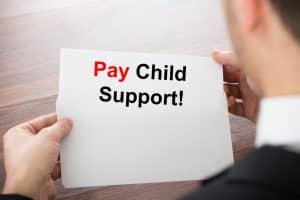Common Misconceptions related to Joint Custody and Child Support In New Jersey
Read on to learn a few common misconceptions divorcing spouses encounter that affect them moving forward.

Physical, Legal, and Joint Custody
Surprisingly, custody is one area for which many divorcing couples in New Jersey are underinformed or misinformed. When, in an introductory consultation, a spouse says, “we want joint custody,” they often don’t recognize that joint custody takes many forms.
First of all, there are two types of custody: physical custody and legal custody. Physical custody determines with whom the child will live, and this can take many shapes. Legal custody determines who will have a legal say in decisions regarding the child’s educational, medical, and general wellbeing.
Types of Physical Custody
When a person with a child is considering divorce, they often don’t have the necessary information to make informed considerations about how best to move forward. There are three types of physical custody, and two of them are ‘joint.’ Joint custody means that both parents spend time with the child based on the parenting time agreements they determine together, or that is court-established where they cannot reach an agreement. While many who want ‘joint’ custody are thinking that they want the child to live with them an equal amount as they live with their spouse, this is rarely awarded by a court. Why? A 50/50 split is, in most cases, destabilizing for a child, as the child has to uproot and move back and forth more than is in their best interest.
The New Jersey Superior Court: Family Part’s priority is the best interest of the child, so unless the parents live very close to one another, have an amicable relationship, and have similar parenting philosophies – or unless the divorcing couple engages in nesting, by which the children live in the same home and the parents move back and forth between the family home and their secondary space, the courts will likely not award complete joint custody.
Primary Residential Custodian and Parent of Alternate Residence
The more likely arrangement is that one parent will be awarded primary residential custodian and the other parent of alternate residence. In this joint custodial agreement, the child lives with and spends the majority of time with one parent. The other parent has ample visitation rights, as determined by their parenting time agreement schedules. The third physical custody agreement is sole custody, in which one parent has exclusive residential rights, and the other parent has limited and perhaps supervised visitation.
Child Support Expenses

Contact Our Sea Girt NJ Joint Custody and Child Support Attorneys Today
At Peter J. Bronzino Law Firm, our experienced team of divorce attorneys supports clients in towns across Ocean and Monmouth County, including Jackson, Sea Girt, Point Pleasant, Asbury Park, Wall, and the surrounding communities in all divorce and custody needs.
To schedule a consultation with a team member today regarding your divorce and custody arrangement, please contact us online or through either our Brick office or our Sea Girt office at (732) 812-3102.







